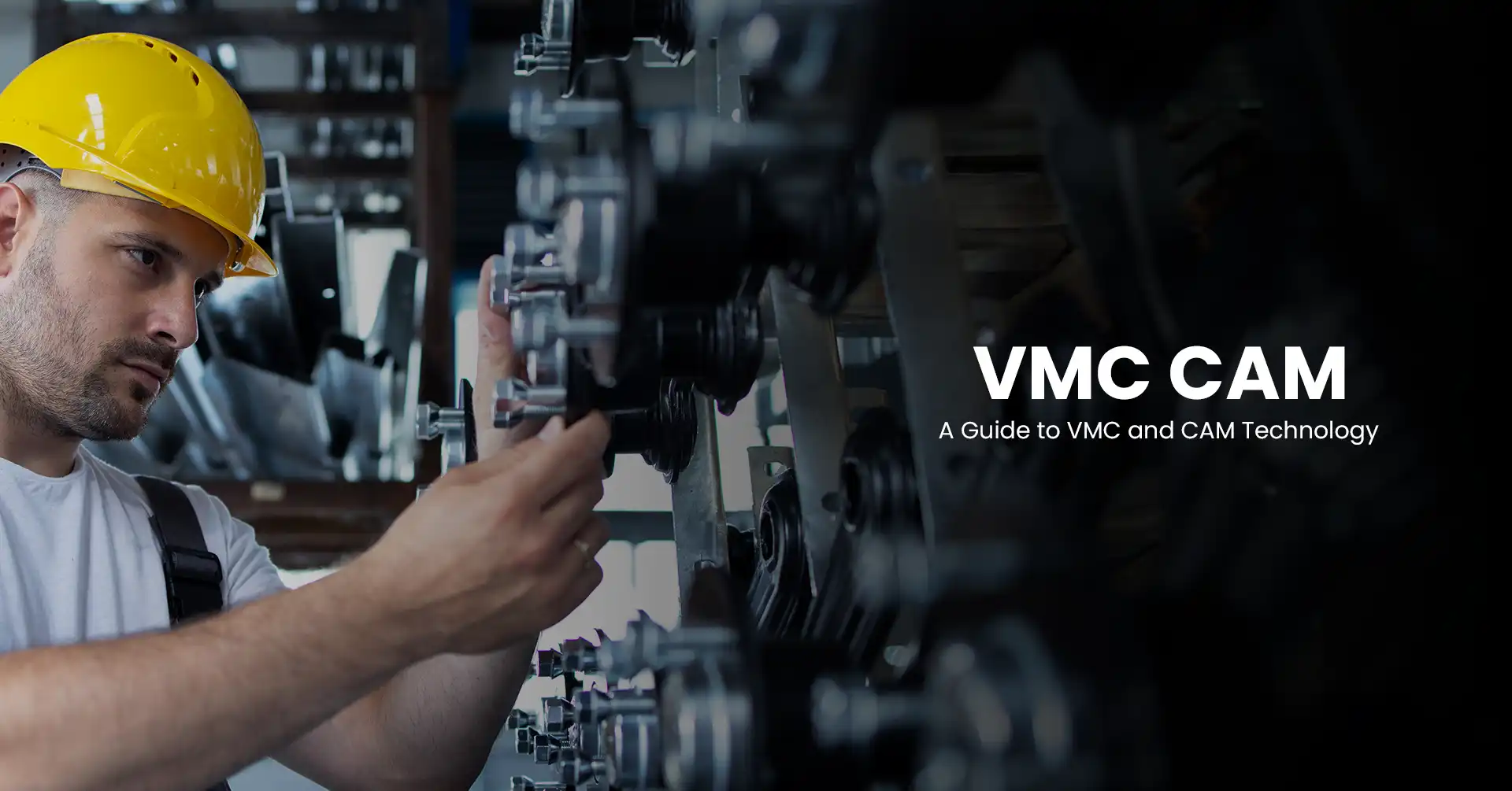Unlocking Competitive Edge: The Synergy of VMCCAM Technology
Introduction: The Rise of VMCCAM
In the ever-evolving landscape of manufacturing, staying competitive demands embracing cutting-edge technology. One such transformative integration is the fusion of Computer-Aided Manufacturing (CAM) with Vertical Machining Centers (VMC), collectively known as VMCCAM. This article explores the intricacies of CAM and VMC, highlighting the advantages of their symbiotic relationship and providing a roadmap for seamless implementation.
Understanding the Foundations: CAM Unveiled
CAM, or Computer-Aided Manufacturing, represents the marriage of design and manufacturing processes. By leveraging computer software, CAM optimizes production processes, streamlining efficiency and precision. From toolpath generation to CNC machine instructions, CAM brings a digital precision to the physical realm.
1. The Role of CAM Software
CAM software acts as the orchestrator in the manufacturing symphony, translating digital designs into tangible products. It enhances accuracy, reduces errors, and empowers manufacturers with a robust toolset for complex geometries.
2. Automation Advancements with CAM
Automation is the heartbeat of CAM. It not only accelerates production but also minimizes human error, fostering a seamless workflow. The integration of CAM sets the stage for enhanced productivity and reliability.
The Powerhouse: Vertical Machining Centers
VMCs, or Vertical Machining Centers, form the hardware backbone of VMCCAM. These machines exhibit unparalleled precision and versatility, making them indispensable in modern manufacturing.
3. VMCs: Precision in Motion
VMCs, characterized by their three-axis control, bring unparalleled precision to the manufacturing process. Their ability to handle diverse materials with finesse positions them as the cornerstone of advanced machining.
4. The Versatility of VMCs
Versatility sets VMCs apart. From intricate prototypes to large-scale production runs, these machines adapt seamlessly, accommodating a spectrum of manufacturing needs.
The Symbiosis: VMCCAM in Action
The real magic happens when CAM and VMC join forces. The synergy between digital precision and mechanical prowess elevates manufacturing capabilities to unprecedented heights.
5. Seamless Integration of CAM with VMC
Achieving synergy requires a meticulous integration process. This section explores the steps involved in seamlessly intertwining CAM software with VMCs, ensuring a harmonious collaboration.
6. Advantages of VMCCAM Integration
Unveiling the benefits, this section delves into the competitive advantages offered by VMCCAM integration. From accelerated production timelines to enhanced product quality, the payoff is substantial.
Implementation Roadmap: Bringing VMCCAM to Life
Executing VMCCAM integration demands a strategic approach. This roadmap provides a step-by-step guide, ensuring a successful and efficient implementation process.
7. Assessing System Compatibility
Before diving into integration, it’s crucial to evaluate the compatibility of existing systems. This step lays the foundation for a seamless transition.
8. Customization for Unique Workflows
No two manufacturing processes are identical. This section emphasizes the need for customization, tailoring VMCCAM integration to suit the unique workflows of individual enterprises.
9. Employee Training and Adaptation
The human element is paramount. A successful VMCCAM integration hinges on training and empowering the workforce to adapt to the new technological landscape.
10. Real-time Monitoring and Optimization
Constant vigilance ensures optimal performance. This section explores the importance of real-time monitoring and ongoing optimization to maximize the benefits of VMCCAM.
Case Studies: VMCCAM Success Stories
Highlighting real-world applications, this section presents case studies that exemplify the transformative impact of VMCCAM integration across diverse industries.
11. Automotive Precision with VMCCAM
Explore how the automotive sector achieves unparalleled precision and efficiency through the seamless integration of VMCCAM.
12. Aerospace Advancements with VMCCAM
Delve into the aerospace industry’s success stories, showcasing how VMCCAM elevates manufacturing processes to meet the demands of the sky.
Challenges and Solutions
No innovation comes without challenges. Acknowledging the hurdles and providing viable solutions is integral to fostering widespread adoption.
13. Overcoming Technological Barriers
Navigating the complexities of technology integration poses challenges. This section offers insights into overcoming technological barriers for a smooth VMCCAM transition.
14. Addressing Workforce Apprehensions
Resistance to change is natural. Addressing workforce apprehensions head-on is crucial for successful VMCCAM implementation.
Conclusion: Paving the Way Forward
In conclusion, VMCCAM emerges as a game-changer in modern manufacturing. The synergy of CAM and VMC opens new frontiers, redefining efficiency, precision, and competitiveness.
FAQs
Q1: How does VMCCAM improve manufacturing efficiency?
VMCCAM enhances efficiency by seamlessly integrating digital precision with mechanical prowess, reducing errors and accelerating production timelines.
Q2: Can VMCCAM be customized for specific manufacturing workflows?
Absolutely. Customization is a key aspect, tailoring VMCCAM integration to suit the unique needs of individual manufacturing processes.
Q3: What challenges may arise during VMCCAM implementation?
Technological barriers and workforce apprehensions are common challenges, addressed through careful planning, training, and communication.
Q4: Are there specific industries benefiting from VMCCAM integration?
Yes, industries such as automotive and aerospace have witnessed substantial benefits, achieving precision and efficiency with VMCCAM.
Q5: How does real-time monitoring contribute to VMCCAM success?
Real-time monitoring ensures optimal performance, allowing for immediate adjustments and ongoing optimization for maximum benefits.







